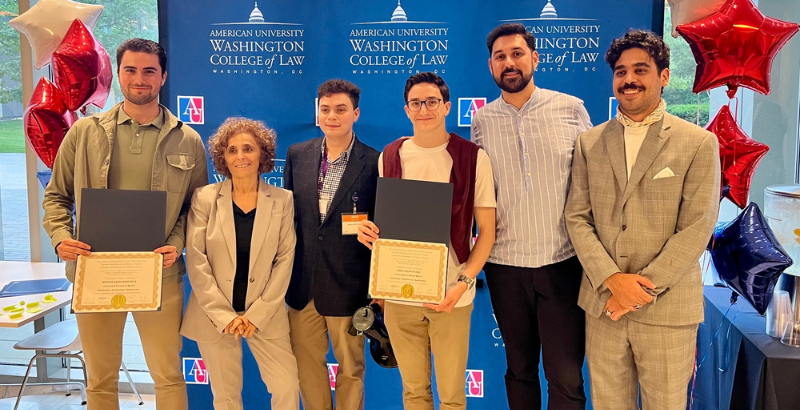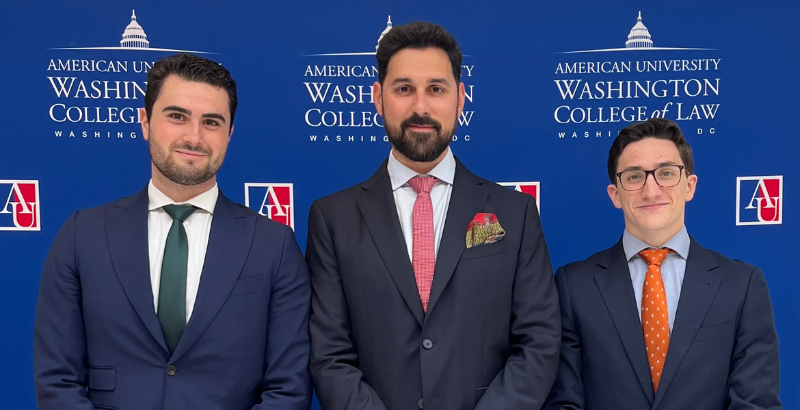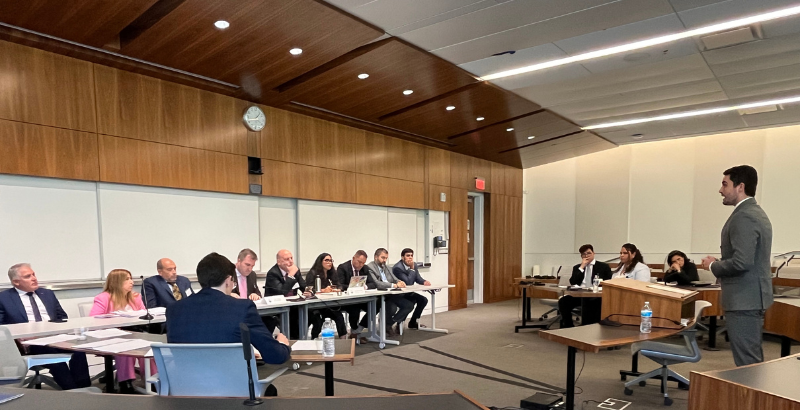The Institution, which won the prize for the best rookie team, is the Spanish university that has achieved the best position in the history of this competition in which, in its 29 editions, more than 365 universities from 60 countries have participated

New international recognition for the academic excellence of Universidad Europea. Universidad Europea has been semi-finalist in the Moot Court, achieving the best result of a Spanish university in the only trilingual competition established to train law students in how to use the Inter-American Human Rights System as a legitimate instance to redress human rights violations.
The event, organised by the American University, Washington College of Law, has been bringing together Spanish, English and Portuguese-speaking universities from all over the world for nearly thirty years. The Universidad Europea, with the help of the students of the double degree in Law and International Relations, Marcos Baena Arrebola and Pablo Valentín Díez; and the professor of International Law and director of the Master's Degree in Human Rights who has acted as coach, Ignacio Perotti Pinciroli, has been the Spanish university that has obtained the best result in the history of the competition. The Universidad Europea not only reached the semi-finals of the competition, but was also recognised as the best rookie team in the competition.

The theme of this XXIX edition was ‘Protection and Guarantees of Human Rights in Digital Environments’. The students discussed the case through the presentation of a written brief and oral arguments in front of human rights experts, acting on behalf of the Inter-American Court of Human Rights. The Universidad Europea team has thoroughly prepared the competition, using applied research and practice in simulated environments.
The coach and teacher at Universidad Europea, Ignacio Perotti Pinciroli, highlighted the experiential learning model in simulated environments, one of the hallmarks of the Universidad Europea, as the key to success in the competition: ‘Before participating in person in Washington, for almost a month we had weekly practice sessions with moot courts, made up of professors of International Law and Human Rights from Spain, who helped us to polish our arguments and oratory’. He also made special mention of the support of Elena Gazapo, Rector of Universidad Europea de Madrid; Eva Icarán, Vice-Rector for Teaching Staff and Research; the Vice-Dean Enrique Garza; the Director of Law and Criminology Ana González Marín; and Eva Jiménez, Academic Director of Universidad Europea. As she pointed out, ‘without the experiential learning model promoted by Universidad Europea, these results would not have been possible’.
Marcos Baena Arrebola and Pablo Valentín Díez emphasised Universidad Europea's commitment to this type of internationalisation projects. The students stressed that these competitions prepare them for their professional future and are an excellent way to apply what they have learned in the classroom: ‘A very important aspect of this type of competition is the ability to present arguments of fact and law in a clear and articulate way, as well as to answer the questions of the juries’. In this line, Perotti explained that ‘the added value of Moot Courts for law students is enormous, and makes a difference in their future career. Especially for those interested in the defence of human rights and democracy. This training is essential in the world in which we live, and that is why we at Universidad Europea are committed to this type of competition.

The result achieved in the competition is another example of Universidad Europea is commitment to prepare students not only for the development of an excellent professional activity, but also to continue training them as people. The Institution's objective is to enable them to successfully take on the new challenges posed by society, in a critical and committed manner. Universidad Europea is a combination of academic solidity and prestige, with a vocation to go further and continue innovating at the pace set by society itself.